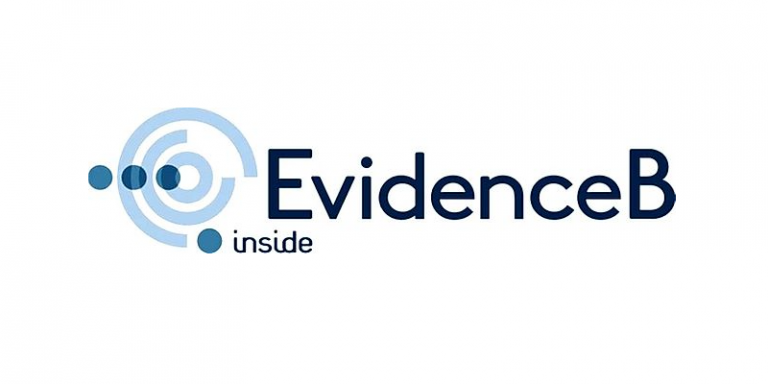
Adaptiv’Langue is a language learning application that offers each student a personalized learning experience. Developed by EvidenceB, it uses the digital workspaces (ENT) of a general and technological high school and a vocational high school in the New Aquitaine region. Techné, the research laboratory for digital technologies in education at the University of Poitiers, has joined the project to develop ELLA (Adaptiv’langue au lycée experimentation to reinforce students’ autonomy in learning the French language).
EvidenceB is an EdTech created in 2017 by Thierry de Vulpillières, ex-director of educational partnerships at Microsoft, Catherine de Vulpillières, ENS, former associate professor of Letters, and Didier Plasse, multi-entrepreneur. The startup now has around thirty employees working with all the players in the educational sector in France and abroad to create intelligent teaching assistants for students from primary to secondary school. It also supports teachers in the digital transformation and aims to create a personalized path for each student.
The team is working on the development of new adaptive learning modules for the benefit of all educational systems. These modules combine in a unique way cognitive sciences and an AI developed in collaboration with INRIA Bordeaux. The start-up was the winner in February 2021 of the call for projects “Experimentation of digital solutions for training and education” driven by the New Aquitaine Regional Council, Grand Poitiers and its Technopole, Réseau Canopé and the SPN.
Experimenting with digital innovation in real-life situations
The two companies have therefore joined forces to respond to the New Aquitaine region’s call for proposals in 2020 as part of the Edlab scheme. The latter enables digital innovation to be tested in real-life situations and thus to validate the educational contributions, the user experience and the economic model. Several cross-cutting themes are favoured: digital education, the transformation of teaching practices and support for learning paths.
Edlab gives the winners access to the following services:
- Support from experts (in digital technology, innovation and pedagogical engineering) for the construction, monitoring and evaluation of the experimentation.
- An experimentation protocol supervised by a research laboratory.
- User testing sessions thanks to the identified experimentation sites.
- Prototyping services for less mature projects.
- An external committee will select projects and carry out ex-post evaluations.
- Support for the deployment of the solution through the organization of a buyers’ committee and the referencing of the innovation on a dedicated platform.
The appropriation of ELLA by students
Techné has implemented a protocol to analyze and document the use of Adaptiv’Langue in high schools in order to improve it and boost its use. Adaptiv’Langue offers students the opportunity to develop their use of the French language through :
- Progressive activity paths that adapt to their level thanks to an algorithm designed to address each student with the exercises that will help them progress.
- Based on linguistic research, a wide variety of learning objectives and types of activities that lead students to progressively explore different approaches to language concepts.
- A dashboard that allows the teacher to quickly view the work of the class, groups of students, and individual students.
Students found the ELLA application interesting, easy to use and for teachers:
“It does not contradict the course but complements it and the dashboards it offers are very useful for monitoring students and for pedagogical guidance.”
Following the experimentation carried out in the two high schools, Techné submitted a report to EvidenceB, which was thus able to adjust its project and redesign the student interface to allow the students to gain in autonomy.
A broader experiment
After the Île-de-France region, which made the Adaptiv’Langue module available to all its high schools in September, EvidenceB is extending the Adaptiv’Langue experiment to the Nouvelle-Aquitaine region. A second field trial has therefore been launched to validate the reengineering choices.
Catherine de Vulpillières, Innovation Director and co-founder of EvidenceB states:
“At EvidenceB, scientific research on educational digital uses is at the heart of our ‘evidence-based’ innovation process. The study carried out by Jean-François Cerisier and the teams from the Techné laboratory at the University of Poitiers was essential for the proper evolution of the screens for the student in Adaptiv’Langue. The ELLA research project allowed us to develop features for the student to improve their perception of progress and their individualized path, which are essential to maintain their motivation and commitment to language learning.”
Jean-François Cerisier, director of the Techné research unit at the University of Poitiers, stresses the importance of this collaboration with EvidenceB:
“this joint research and development approach is valuable. On the one hand, it has allowed the improvement of the application by mobilizing research methods for a scientific analysis of its use in real conditions. On the other hand, it allows us to formalize new research questions, especially on how artificial intelligence techniques can enrich educational practices.”
Translated from EvidenceB et Techné lancent la seconde version du module d’apprentissage du français ELLA









